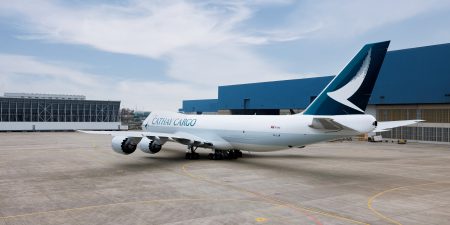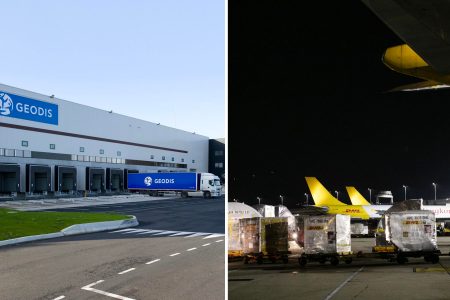GEODIS has set a target of 25 per cent of leadership roles to be held by women by 2023 – that’s against a 2020 industry average of 13 per cent. How are you doing with this target?
Today, our female employees represent 40 per cent of our workforce and 20 per cent of our senior executives, compared to 13 per cent in 2017. We work with all our businesses and regions across the globe with the goal of developing a culture of openness focusing on non-discrimination.
Our initiatives include, among others, a requirement for parity in the lists of candidates for recruitment and promotion; the implementation of a worldwide training programme aimed at combatting ‘stereotypes and prejudices’ and the introduction of a minimum period of maternity leave of eight weeks on full pay for all women in the Group, no matter what country they work in.
What steps has GEODIS taken to tackle perceptions of the industry’s perceived male dominance?
We have four main areas that we concentrate on: communication; networks of influence; a specific set of objectives that we have set ourselves for the number of women in the workforce; and, finally, achieving external certification that validates and gives credibility to our approach to gender diversity and parity.
We rely on an external accreditation: GEEIS (Gender Equality European and International Standard). This ensures that we all strive to move in the right direction, and at every level to promote parity. GEEIS audits take into account the size, strategy, culture and maturity level of the country teams seeking accreditation.
Our deployment plan includes the accreditation of 12 countries over three years, with specific coaching to best support each country in achieving its goal. We want our country organisations to maintain an ethos of continuous improvement and for accreditation to remain a benchmark for assessing progress through a renewal process.
What is the GEODIS Women’s Network, and what role does it have to play?
This internal network brings together women – and men – who promote parity in all the countries in which GEODIS operates and encourages a change in attitudes and habits. The GEODIS Women's Network has more than 350 active members, and it relays all the local and global mechanisms which promote the professional careers of women, such as GEODIS’ training programme MANAGE, which aims to strengthen managers’ skills and leadership through a 14-week course. The network has also initiated mentoring programmes with a series of informal and more formal sessions, especially in the US and across Asia Pacifics.
What other initiatives do you have in place that are working towards creating a more diverse workforce?
As of 1 January 2022, one quarter of an executive's annual bonus is based on an ESG (environmental, social and governance) KPI. One of the KPIs is related to their ability to ensure gender parity in their teams. Our goal is to increase the number of women in managerial positions and to work towards removing the glass ceiling.
We also need to break down stereotypes by demonstrating examples of female success in which younger generations can see and recognise themselves. We have pioneers who have led the way in that regard – such as our CEO, Marie-Christine Lombard.
What do you see as the benefits of a diverse workforce?
The more a company grows, the more talent it requires to meet its customers’ challenges. Talent is found in the diversity of our employee profiles, whether they are female or male. Competence and motivation are the main assets, yet not the only ones to remember. Diversity allows the emergence of ideas and promotes creativity, so it is a source of innovation and solutions for the services we offer.



